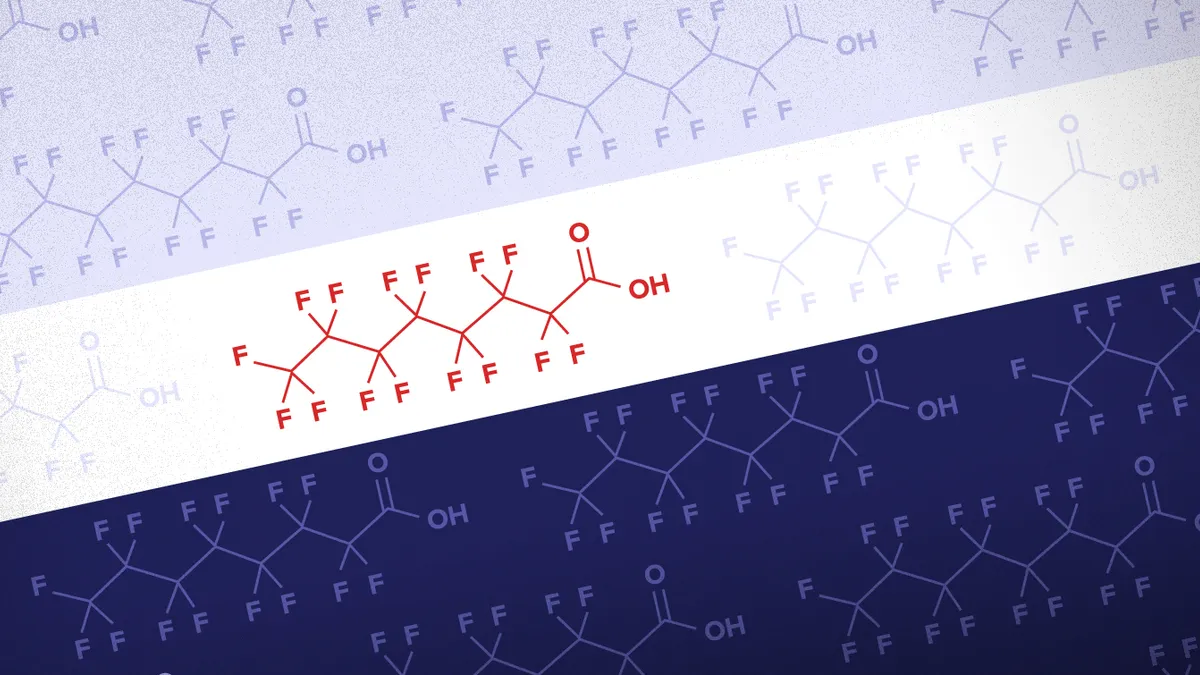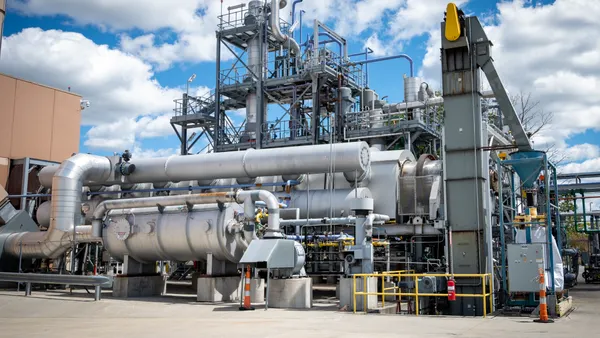As federal agencies continue to fall behind on meeting major PFAS regulatory deadlines, state governments are expected to introduce numerous PFAS bills that activists hope will result in quicker regulation of these “forever chemicals.”
The Environmental Working Group, an environmental nonprofit, recently updated its report card that keeps track of progress made by the U.S. EPA and other federal agencies to study, monitor and regulate per- and polyfluoroalkyl substances. Since EWG first published its report card last fall, federal agencies have fallen even further behind in meeting major milestones, EWG members said during a press briefing on Thursday.
The updated report card “shows that progress has slowed or even stopped,” said Scott Faber, EWG’s senior vice president of government affairs. “President Biden's team has missed important deadlines, and it's our communities that are paying the price.” In addition to urging federal agencies to catch up, EWG is calling on Congress to pass key PFAS-related legislation.
The U.S. EPA has said it has “accelerated the pace of research and actions” since President Biden took office, and Administrator Michael Regan has said PFAS regulations are a major priority for the agency.
Meanwhile, environmental organization Safer States released a new report on state legislatures’ role in managing PFAS. The organization anticipates numerous bills to tackle PFAS regulations related to disposal, packaging bans and other approaches in 2023.
What major PFAS actions are overdue?
EWG says federal agencies and the White House are experiencing numerous delays related to air and water regulations, including several to-do items relevant to the waste and recycling industry:
- Drinking water standards: The Biden administration’s delay in establishing PFAS drinking water standards is the “most significant” delay on the list, said Melanie Benesh, EWG’s vice president of government affairs, during the press call. The EPA originally planned to have a proposed rule for two chemicals, PFOA and PFOS, in fall 2022 and a final rule in fall 2023. That first deadline was pushed back to winter 2022. Benesh notes the EPA did send its proposal to the White House in October, “but it has been stuck with the Office of Management and Budget ever since. And there's really no reason for this delay.”
- Effluent guidelines: The EPA announced in January that it plans to develop new effluent limitation guidelines and pretreatment standards for landfill leachate due to the presence of PFAS. EWG said the plan, which also includes proposed rules for chemical manufacturers, will set back the timeline for draft regulations by as much as nine months. The EPA did not provide an estimated date for when landfill leachate regulations could come
- PFAS in packaging: EWG also criticized other federal agencies, such as the Food and Drug Administration, for slow action. Benesh called for the FDA to establish a ban on all PFAS in food-contact packaging, saying the agency has known about the negative effects of the chemicals for years. State laws and public pressure on retailers have helped shift the market toward PFAS-free alternatives, she said. The FDA stopped allowing certain long-chain PFAS in food packaging as of 2016, and the agency has said it is working with packaging manufacturers to phase out other PFAS.
What role could Congress play this year?
Activists are looking beyond the federal agencies to Congress to introduce and pass PFAS-related legislation:
- PFAS Action Act: Faber called for the reintroduction of the bill, which aims to set hard deadlines for the EPA to designate certain PFAS as hazardous substances and establish PFAS drinking water standards, “so that agencies have no excuse not to move swiftly.” The bill passed the House in 2021 but failed to advance in the Senate. It has not been reintroduced so far this year.
- PFAS in the farm bill: Congress is expected to reauthorize the farm bill this year, and EWG is calling for the 2023 omnibus bill to include PFAS provisions, particularly those related to testing biosolids or sludge for PFAS before selling it to farmers. The topic of regulating PFAS in sludge has caused concerns in the composting and disposal industries because of worries that more material will end up in landfills.
- Lessons from the European Union: Benesh noted that Congress could take notes from the European Union’s recent proposal to ban PFAS, which would give companies between 18 months and 12 years to introduce alternatives to the chemicals depending on the availability of alternatives. “This is a really viable, important approach. We think this is really a good way to think about getting PFAS out of products and out of the environment as quickly as possible,” she said.
What are state legislatures working on?
Safer States’ new report highlights numerous anticipated actions at the state level in 2023. It expects new PFAS regulations will take hold more quickly at the state level than at the federal level.
- Banning PFAS in “recyclable” materials: Safer States anticipates at least five states — Hawaii, Illinois, Maryland, Minnesota and New Jersey — could consider policies that disallow PFAS in products labeled as or claiming to be recyclable. The report names California’s recently-passed “truth in labeling” law as inspiration for these new bills. “These policies send industry clear signals about chemistries and materials that are allowed in recycling systems,” the report states.
- Addressing PFAS disposal: Alaska, Massachusetts, Maryland, Minnesota and Oklahoma are among the states that Safer States expects to debate bills setting restrictions on disposal of PFAS-containing items or banning PFAS incineration. Bills meant to manage or restrict PFAS in biosolids and sludge used for farmland could come up in Iowa, Massachusetts, Maryland, Oklahoma, Oregon and Washington.
- Continuing a trend: The active 2023 session picks up where last year’s state legislatures left off. In 2022, state lawmakers passed several notable PFAS regulation bills that have implications for the waste and recycling industry, such as bans on PFAS in packaging in Colorado. Maine prohibited the land application of biosolids from wastewater treatment plants and the sale of compost containing biosolids because of concerns they contain PFAS.











